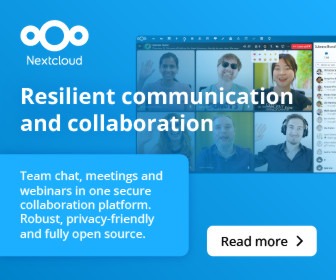I’ve spent my time in the tech support trenches…and someone else’s time as well. Please mark my dues paid in full. I’ve worked from the script-reader doing basic trouble-shooting, up to floor supervisor and level three support. My point? Not everybody who works support at a call center is an idiot, but some certainly are…
Since 2005, I have helped financially-disadvantaged kids get computers in their homes. While it’s become a cliché in the past few years, the “digital divide” most certainly exists. Since our early days of Komputers4Kids, The HeliOS Project and now Reglue, the gap between the tech haves and have-nots remains a problem.
 Way more than many of us would think.
Way more than many of us would think.
With that being established, I want to take a walk down memory lane…to let’s say 2005.
Back then, getting a Linux computer bolted-up to broadband internet was straight forward. Even nine years ago, the biggest challenge to getting Time Warner or eternal-hell-and-damnation Comcast routers online might have been to reboot the router.
Maybe. The majority of the time, not even that.
So imagine my surprise when I wasn’t able to get one of our established Reglue kids online. The oldest boy, Rex, had been using his Reglue computer for four years and it was time for an upgrade. I was working with a brand new Time Warner modem and wireless router, out of the box. I even went back in and made sure I was accessing the modem properly. I was. This task shouldn’t have taken ten minutes and I was now on minute thirty.
With a sigh of resignation. I got myself into the support call queue and waited about ten minutes for my turn. Finally, “Bradley” informed me that he was pleased to help me and would I be good enough to tell him the nature of my problem. Just a tad grumpy from his enthusiasm, I ‘splained what was going on.
And yeah, I almost mouthed the words perfectly with him.
“Let’s turn off the computer and both modem and router, then reboot or power them on in opposite order.”
As I was reaching over the modem to unplug the wireless router, my hand came to rest on the top of the router. I pulled by hand back quickly. It was burning hot.
I told Bradley that I might have found our problem and told him that I would have the family return the router the next day for exchange.
“Sir,” he challenged, “high speed devices are always going to be warm to the touch. We are going to need to ping from the command prompt, but that’s not as scary as it sounds. Which version of Windows or Mac are we using?”
“Bradley,” I answered, “we are using Linux and I’ve already tried ping and other network commands. There is nothing wrong with the network. The frigging router is hot enough to make pancakes.”
I don’t think it took him two seconds to grab the strongest last straw in his playbook.
“Oh, I’m sorry, we don’t support Linux.”
It wasn’t an apology. It wasn’t a lead-in to attempt another way to solve the problem. It was a definitive statement to end our conversation. I couldn’t help but chuckle a bit.
“Bradley, this household has been connected to Time Warner with a Linux computer for over four years. Are you telling me that Time Warner has recently dropped support for Linux? That has to be the case, because a Linux computer has been working beautifully on your system up until now.”

He was stumped. I could imagine him scrolling madly through the help pages in his script, trying to make sense of what was going on. But me being me, I let him off the hook.
“Bradley, connect me to your quality control or equipment management agent. I need to get a ticket number so I can bring in this malfunctioning router.”
With what was obviously a sense of relief, he thanked me for using Time Warner and transferred the call, which promptly disconnected me completely. I took the router backto Round Rock the next day and within an hour I had my kid’s computer up and running.
I do, though, want to sidle up next to a level two or three Time Warner tech and see what the deal is with “we don’t support Linux.” Your server backbone is on Linux…at least in part.
It’s the 21st century. Time Warner might want to start acting like it. But it could always be worse…we could have Comcast as our provider.
Ken Starks is the founder of the Helios Project and Reglue, which for 20 years provided refurbished older computers running Linux to disadvantaged school kids, as well as providing digital help for senior citizens, in the Austin, Texas area. He was a columnist for FOSS Force from 2013-2016, and remains part of our family. Follow him on Twitter: @Reglue










From what I read, you may very well end up with Comcast as your provider. Very shortly after Comcast buys Time Warner. Won’t that be fun.
I use Linux and TW. When I need to call them, I typically just pretend I’m using Windows. Saves time.
Much of the support from places like TW is of the “Go here and click this” variety. It has to be geared to the lowest common denominator. It’s relatively easy to train reps on a few almost identical Windows and OS X interfaces, and write scripts to tell the XP users to “Go here and Click this” while the Win8 users get “Go There and Click that”.
That can’t be done with Linux, since there’s a truckload of interfaces out there, and everyone has tweaked and changed their own. Do you spend money training people how to tell and Enlightenment user where to click, for example?
Network stack in Linux distros differ, too. So, you spend money prepping staff on Gnome Shell assuming that Network Manager is there, and the some guy who never uses it calls in.
TW probably does use lots of Linux interally. But, in the case of customer service, I think this is another case of the costs of dealing with the near-infinite varieties of Linux scenarios exceeding any potential reward. In any case, it’s not like most of TW’s Linux users are going to quit and go elsewhere. There is no “elsewhere” for most of us.
I work for a tech support company. Not answering the phones myself, but everyone does 2nd or 3rd level tech support when needed.
While the folks who answer the phone use Winders, and all the office machines are either windows or Macs for those few elite executives, supporting Linux is actively promoted. The calls are few, but the support team is drilled in it.
Most of the calls are Ubuntu on laptops, trying to connect wirelessly. The great benefit of Linux is that the same command line tools exist in every distribution, if the user can get past the “command line” terror.
> “There is no “elsewhere” for most of us.”
This is the reason the FCC needs to stop catering to the huge media conglomerates posing as ISP’s (Time Warner, Comcast, Verizon) and do something to protect individuals by restoring real competition to the market.
In the late nineties, ISP feature offerings were on the rise while consumer prices were plummeting, yet after the introduction of “broadband”, advancement ground to a halt, while prices steadily climbed. Those prices are still climbing, even as the provider’s costs are falling. Why? Because those companies have captive customers and there is no competition. Very few people would argue that modern life is practical without internet connectivity, yet many people have no choice over who provides that connectivity unless you are prepared to move your family. It’s wrong and needs to be fixed.
Mike: It’s wrong and needs to be fixed; unfortunately, the fix is in. Probably half the top people and most of the very top at the FCC come from the industries they’re regulating (just like the FDA, financial regulators etc) and will go back in a few years, anticipating very large paychecks as long as they played ball in the interim. Not gonna change unless there are some very big political upheavals.
Comcast and Time Warner don’t support Linux because there is no Linux.
They don’t have brainiacs working for them at the customer helpdesks. The playbook for Linux kernel based systems would have to read something like.
What kernel version?
What distribution and distro version?
What version of ‘X’ is that?!?
What desktop environment does that one use?
What package management does that use?!?
There’s an assumption that once you get your feet wet with Linux, you’re automatically a pro. That’s not the case.
Choice is great! Not really. It’s much easier for a tech support person to say, ‘Is this a Windows, Mac, or Ubuntu version?’ Or *insert* any distribution, so that way the next question would’ve been, ‘What version, XP/Vista,OSX 10.6, Ubuntu 14.04, etc?’
At least the tech support genius would know how to bring up a command prompt in Windows or MAC? Where is terminal in Gnome, KDE, XCFE, or who cares?
On that note, I’ve been using Linux on the desktop since around the turn of the century. It’s always perplexed me how simple a GUI on top of Linux is… We made it so darn difficult. Thanks Google for buying Android… Hopefully they buy Canonical and incorporate that into Chrome so that way the next time anyone calls Comcrap, their techs can ask, ‘…are you running Windows, MAC, or Chrome?’
When I called Charter recently and was asked which version of Windows or MacOS I was using I said–not to worry. Just get that little icon/light on the cable modem to show that it’s connected to the Internet and I’ll take it from there. From that point on there was a a lot of plug and unplug and disconnect cable and reconnect and so on. Then there was “Oh, I see that in your area there has been a general outage. We’ll give you an automated call back when the problem has been fixed.” No sweat, no Windows, no Mac, just me, Fedora and the cable modem.
I’ve noticed that the only difference between Comcast and TW is the name, I have never dealt with TW but I have friends that do and they always complain about them just as much as I’ve heard others do about Comcast.
I had an issue recently with Comcast and their WiFi speeds, turns out it was their wireless modem and their XFINITY WiFi and CableWiFi hotspots. Mine also ran hot and was crappy as hell on WiFi while hard wired was fine. They also tried to blame the issue on a general outage to which I kept replying (the numerous times I called support) that an outage would no allow wired connections full speeds and WiFi connections as low as 2G speeds.
Here is my post about it: http://computerobz.wordpress.com/2014/08/08/comcast-and-their-crap-modem/
Ever since then I have had no issues with my connection despite recently seeing a “general outage” warning on my account page again.
I too enjoy when they try to pull the Linux is not compatible crap. Before I used their WiFi modem I had an issue and the Tech that came out gave me that speech, I asked him what he needed to do and I did it perfectly on my Ubuntu machine. His expression was priceless.
quote::Choice is great! Not really. ::quote
Well actually it is, and in your next sentence, you dexscribed how it can work in practice.
quote::It’s much easier for a tech support person to say, ‘Is this a Windows, Mac, or Ubuntu version?’ Or *insert* any distribution, so that way the next question would’ve been, ‘What version, XP/Vista,OSX 10.6, Ubuntu 14.04, etc?’::quote
Yes it is. It’s also easier for the person writing the scripts and the software that controls those scripts. I used to work for a call centre, and I know for a fact that working with similar parameters is much easier than working with a catch all of Linux. If I had to write scipts that took tier 1 through a set of checklists and responses, it would be easier if I was starting from Distibution name rather than “Linux”, although that in itself wouldn’t make things all that difficult, because selection Linux as the clients response should simply bring up the list of distributions that the call centre supports. Then from there it would be relatively simple to move to supported desktop, and or means to access virtual terminal.
Adding new Distributions and their variations would not be all that difficult. At lest then, if the client has a question related to a specific desktop that we don’t support, it would be relatively simple to pass them on to a higher tier of support.
quote::At least the tech support genius would know how to bring up a command prompt in Windows or MAC? Where is terminal in Gnome, KDE, XCFE, or who cares?::quote
Exactly.
The real problem is that most ISP call centres don’t want to provide support, and therefore do only the minimum they can get away with.
When I say I worked for a call centre, I mean I was the programmer who wrote the software that provided the logic for the scripts.
quote::I too enjoy when they try to pull the Linux is not compatible crap. Before I used their WiFi modem I had an issue and the Tech that came out gave me that speech, I asked him what he needed to do and I did it perfectly on my Ubuntu machine. His expression was priceless.::quote
What that means “Linux is not compatible” is “we have never used Linux, we have no idea how to access anything using Linux”.
Most of the time Linux is more compatable than Windows, and probably Mac, because the necessary software is already installed, and is quite easy to use. Any here tried to set up Windows on a network using the Windows default software. It’s actually quite convoluted compared to how it’s done on most desktop Linux. I know I always get lost.